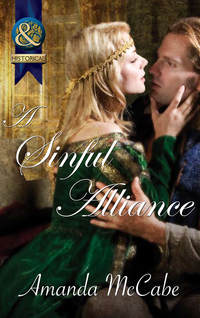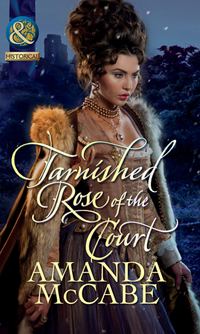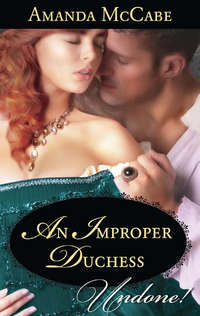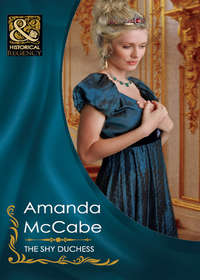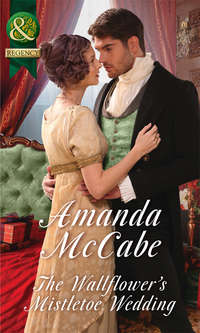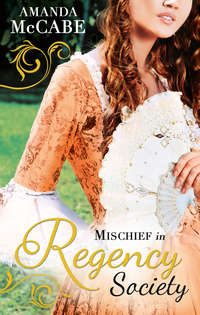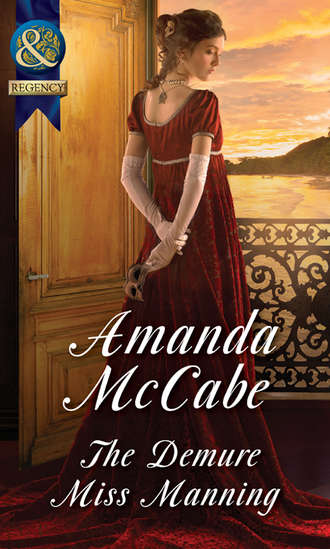
Полная версия
The Demure Miss Manning

‘Miss Manning, have you met the great hero of the day?’ Lady Alnworth said.
He turned to smile at Mary, and it took all her long years of careful diplomatic training to keep her own polite smile in place. A chivalric knight of old, only in a red coat instead of gleaming armour. On him, that uniform seemed—different. Exotic. Alluring.
‘How do you do, Miss Manning?’ he said, bowing over her hand.
His breath through her glove made her shiver. His hair was a golden brown, shimmering as if he spent much time in the sun. It gave him such a warmth she wanted to get close to. So very vital … burning with raw, energetic life.
Yes, she thought. No wonder all the young ladies of London were in love with him. If she wasn’t careful she would soon be one of them!
Author Note
I don’t know what last winter was like where you are, but here it was cold, grey and long! I am not a winter person—ever … So I definitely loved escaping to the warm beaches of Brazil, even if it was only in my imagination.
I also loved watching the romance of Mary and Sebastian unfold against the palm trees and real-life political intrigue of 1808 Rio. They started to feel like real friends—two people whose adventures I loved following every day. I was never sure where they would go, but I knew they definitely belonged together—two strong, kind-hearted, brave people, who are too honourable and stubborn for their own good! Maybe I was just feeling extra-romantic after my own wedding last summer! I hope you enjoy their adventures, too …
For more behind-the-book history and deleted scenes from The Demure Miss Manning be sure to visit me at ammandamccabe.com.
The Demure Miss Manning
Amanda McCabe

www.millsandboon.co.uk
AMANDA McCABE wrote her first romance at the age of sixteen—a vast epic, starring all her friends as the characters, written secretly during algebra class. She’s never since used algebra, but her books have been nominated for many awards, including the RITA, Romantic Times Reviewers’ Choice Award, the Booksellers’ Best, the National Readers’ Choice Award, and the Holt Medallion. She lives in Oklahoma with her husband, one dog and one cat.
Contents
Cover
Introduction
Author Note
Title Page
About the Author
Chapter One
Chapter Two
Chapter Three
Chapter Four
Chapter Five
Chapter Six
Chapter Seven
Chapter Eight
Chapter Nine
Chapter Ten
Chapter Eleven
Chapter Twelve
Chapter Thirteen
Chapter Fourteen
Chapter Fifteen
Chapter Sixteen
Chapter Seventeen
Chapter Eighteen
Chapter Nineteen
Chapter Twenty
Chapter Twenty-One
Chapter Twenty-Two
Chapter Twenty-Three
Chapter Twenty-Four
Epilogue
Author Note
Extract
Copyright
Chapter One
London—1805
‘I hear he is the handsomest thing ever seen!’
Mary Manning tried not to laugh at her friend Lady Louisa Smythe’s enthusiastic words. Instead, she smiled and nodded at the people they strolled past in the park, and adjusted her lace-trimmed parasol against the bright afternoon sun. Lady Louisa did tend to get so very excited over titbits of gossip, especially gossip about good-looking young men.
And a good-looking young man who was the newest hero of the war against Napoleon, after his valiant behaviour at the Battle of Caldiero—well, Mary was surprised she hadn’t swooned quite away with enthusiasm yet.
But Mary had to admit even she was intrigued by the tales of Lord Sebastian Barrett, third son of the Marquess of Howard and a captain in the Third Hussars, and his heroism. Just a tiny bit.
Lady Louisa took Mary’s arm as they turned along a winding, narrow river path. Mary automatically studied the people gathered there, strolling in pairs or laughing quartets, talking together by the sun-dappled water. Her father had worked in the diplomatic service for as long as she could remember, and she had been his hostess since her beautiful Portuguese mother died a few years ago.
Sixteen had been young to organise dinners and card parties where foreign envoys and their sophisticated wives could make alliances with the English representatives, especially in such dangerous wartime days, yet there had been no one else to do it. Mary had already learned much from watching her gracious mother, listening to her parents’ conversations, asking questions. She loved the work, loved having a purpose. Loved learning new things. With her father, she had seen Italy and Austria, lived in Russia for many months, only returning to England a few months ago.
Yet sometimes—well, sometimes she almost wished she could giggle and whisper like other young ladies, be carried away by the wild wings of flirtation and infatuation. Just for a moment. That was why she so enjoyed being friends with Lady Louisa.
‘The handsomest man ever?’ Mary said. She and Lady Louisa stopped in the shade of a copse of trees where they could watch the crowds flow past, the children sailing their toy boats on the water, the bright flutter of beribboned bonnets and silk parasols. ‘Better looking than the Prince de Ligne? You swore last week he had quite won your heart for ever.’
Louisa laughed merrily. ‘Oh, him! He is to marry some little German dumpling of a duchess, trying to get his lands back. He was a fine dancer, to be sure, but he is no hero like Lord Sebastian. There is just something about a man in uniform, don’t you think, Mary? A wonderful manly spirit.’
A naval officer in his blue coat and cocked hat strolled past just then, giving them a bow and a grin. Louisa giggled and fluttered her handkerchief at him.
Mary bit her lip to keep from smiling. It seemed any uniform would do, Army or Navy.
She thought of the stories she had heard of Lord Sebastian, how he fought off ten Frenchmen in hand-to-hand combat, had several horses shot from beneath him. She was sure they could not all be true, but she liked the tales anyway. Fairy stories had always appealed to her, ever since she was tiny and her mother would tell her Portuguese myths at bedtime. Ancient battles, knights, fair maidens.
Louisa leaned closer to whisper in Mary’s ear. ‘Though I am sure Lord Sebastian can be no more handsome than his brother Lord Henry. You should have no worries on that score.’
Mary looked at her friend, startled. How did Louisa know of Lord Henry and his vague sort of courtship? ‘Lord Henry Barrett?’
Louisa’s smile turned secretive. ‘Why, yes. For is he not a great admirer of yours?’
Mary felt her cheeks turn warm and not from the touch of the sun beyond the edge of her parasol. She looked away, staring hard at a child with a wildly waving hoop dashing past with his nurse in pursuit. ‘I wouldn’t say that. We have only met once or twice.’
‘No?’ Louisa already seemed distracted by a gentleman on horseback in the distance. ‘Are you quite sure? You two would surely be a most suited pair. My uncle says Lord Henry’s future in the diplomatic service seems assured. That he might even be sent to Russia soon, like your father.’
A most suited pair. So they would be. Lord Henry Barrett had become something of a protégé to her father in recent days. Sir William Manning never complained of having only a daughter, only Mary, but she knew he would have liked a son to follow in his career footsteps, whom he could guide and advise amid the powder keg of politics and wars and royal courts.
Her father had asked her to invite Lord Henry to some of their dinners lately, and often the two of them were talking afterward in the library for many hours. Much longer than Lord Henry had ever talked with Mary herself.
A promising young man indeed, Mary dearest, her father had said only that morning, as she prepared to go out walking with Louisa. Steady and calm, exactly what this country needs now.
Mary sighed as those words echoed in her mind. She twirled her parasol, thinking of Lord Henry Barrett. He was handsome enough, with golden hair and a careful, polite smile. The perfect diplomat, correct, poised, giving nothing away, barely even touching her hand in a dance.
A man somewhat like her father must have been, in fact, before he met her beautiful mother in Lisbon and brought her home to London. A man her father would surely like to see her matched with, so she could continue in what she was trained to do. To be a hostess and helpmate in foreign postings. A diplomat herself in all but title.
Mary knew that would be the best path in her life. The only path, really. All she knew.
Yes, Lord Henry Barrett would be a suitable match. Tales of his dashing, heroic Army brother were only that—thrilling fairy stories.
‘Lord Henry is amiable,’ Mary said carefully. ‘But I don’t know him well enough to say whether he admires me or not.’
‘Really? I am sure he must. You would be the perfect diplomat’s wife.’ Louisa idly tapped her folded fan against her pink-striped skirts, watching the passers-by as if she searched for another handsome face. ‘And he is the second son, after all, where Lord Sebastian is the third. He might succeed to an earldom one day.’
‘Louisa,’ Mary said with a laugh, ‘of all Lord Henry’s advantages, I would say that is most implausible. I have heard the wife of the eldest brother is expecting.’
‘Oh.’ Louisa gave a little pout. ‘How disappointing. I should have so liked to be bosom bow with a countess. You shall have to make do with being Lady Henry, I suppose. And perhaps I shall be Lady Sebastian! We could be sisters!’
Mary laughed even more. That was why she liked being friends with Louisa. All the people who came to her father’s house, as interesting as they were, were so very solemn. Louisa made her laugh. ‘You have not even met Lord Sebastian yet, Louisa. How can you know if you would like him enough to marry him?’
‘Because sometimes a lady just knows!’ Louisa seized Mary’s hand and pulled her along behind her back on to the pathway. ‘He sounds handsome and brave and dashing. Exactly what I should be looking for, don’t you think?’
Mary nodded. Were those not things every lady should look for? Except for sensible, useful ladies like herself, of course. She was supposed to look for someone she could help, a family she could fit into. Yet she couldn’t quite help envisioning a tall, lean, darkly handsome figure at the head of a great cavalry charge. The stuff of epic poems.
Louisa tugged her out past the park gates, chattering about a pretty bonnet she had glimpsed in a window and ‘quite coveted’. Carriages and fine horses clattered past in a great parade.
‘I think we are very near Lady Alnworth’s house,’ Louisa said. ‘We should call on her. She promised to lend me her amethyst bracelet to go with my lavender gown for the Seeton ball tomorrow night.’
Lady Alnworth was one of the greatest hostesses in London—and one of the most scandalous, at the centre of a dashing crowd. ‘I am not so sure, Louisa. My father will be home soon and wanting his dinner.’
‘It will only take a moment! Besides, you know that Lady Alnworth always has all the latest news. Perhaps she will know if Lord Sebastian will be at the ball tomorrow.’
Mary laughed. Perhaps Lady Alnworth was not the very most high-in-the-instep lady in town, but she was respectable enough. And news was always welcome. ‘Very well. Just for a moment.’
They made their way to Lady Alnworth’s house, a tall, bright-white structure at the edge of the park. As always, her doors were open to visitors and the clatter of talk and laughter flowed out into her lavishly decorated hall. It was a lively, fashionable, bright house and suddenly Mary was rather glad they had come.
‘Is Lady Alnworth at home?’ Louisa asked the butler.
‘Indeed she is, Lady Louisa, Miss Manning,’ he answered with a bow. ‘A large party has just arrived before you, including the Duchess of Thwaite.’
Louisa’s eyes widened and even Mary was rather impressed. The duchess seldom came to town, choosing to keep her own almost-constant house party at Thwaite Park. Whenever she graced a London party, she trailed clouds of illustrious friends behind her. She usually only came to town for her annual ball.
‘The duchess is here?’ Mary asked.
‘Yes, with several guests, Miss Manning,’ the butler answered, solemnly but with a twinkle in his eyes. ‘Heroic guests.’
‘Heroic?’ Louisa squealed. ‘Oh, Mary! What if it is Lord Sebastian, and maybe some of his Army friends? How very exciting. I knew it was a good idea to call on Lady Alnworth today.’
‘Louisa, surely it is not...’ Mary began, but Louisa was already dashing off towards the half-open drawing-room doors.
By the time Mary caught up to her, following at the polite pace long years at royal courts with her parents and strict governesses had taught her, Louisa was already at the group gathered around the tall, open windows that looked out on to the park. Mary paused to study them, to gauge the scene, as she would a painting. As she had always been taught to do.
The duchess was at the centre of the group, tall and dark-haired, dressed in the height of fashion in a green-and-black pelisse and tall-crowned green hat, with Lady Alnworth lounging on a brocade chaise beside her in a red classical robe. They looked very dramatic with Louisa, all blonde curls and satin ribbons, fluttering to greet her. A tea table laden with a gleaming silver service was laid before them and they were surrounded by laughing admirers vying for their attention.
Mary felt suddenly shy. She had been taught to be comfortable around different sorts of people, to talk to anyone in a polite fashion, but these people were more than polite—they were known as the wittiest group in London. She recognised Mr Nicholas Warren and Lord Paul Gilesworth, two of the most sought-after society bachelors, and Lord James Sackville, but not another man who stood half in the shadows of the window curtaining, looking out at the park.
‘Miss Manning,’ Lady Alnworth called. ‘Won’t you come in and help us settle a question? You are always so clever, so well read. Lord James here says Plato cannot be a pagan since he advocates the immortality of the soul, while Mr Warren claims that cannot be. I am terribly confused.’
‘I fear my reading is not so extensive as all that, Lady Alnworth. I have only read what Plato reported Socrates, his teacher, to have said,’ Mary said, making her way towards their hostess with her brightest smile. ‘I know little about...’
She suddenly noticed a movement from the man near the window, a flutter of colour that caught her attention. A man in a red uniform coat stepped forward, into a buttery blade of sunlight, and Mary faltered at the sight of him.
He was quite, quite beautiful, almost unreal, like something in a book suddenly sprung into vivid life. A chivalric knight of old, only in a red coat instead of gleaming armour. On him, that uniform seemed—different. Exotic. Alluring.
He was taller than most of the men she met in London, with enticingly broad shoulders and lean hips, long hips encased in pale breeches set off with tall, glossy black boots.
His hair was a gold-tinged brown, almost tawny, shimmering as if he spent much time in the sun. It gave him such an enticing glow, a warmth, she feared she wanted to get closer and closer to, as if he could melt every tiny sliver of ice around her. Of the loneliness that had seemed to close in around her since her mother died. That hair fell in unruly waves over his brow and the high, gild-trimmed collar of his coat, enticingly soft-looking.
He didn’t seem as if he really quite belonged in the gilded, brocaded drawing room, despite his immaculate uniform and a noble bearing. Mary imagined him on the deck of a pirate ship, riding through a stormy sea, or racing a wild horse madly across an open field.
Or maybe grabbing a sighing, melting lady up into his arms, kissing her passionately until she swooned.
Mary almost laughed aloud at her romantic fantasies. Obviously she was mistaken when she told Lady Alnworth that she hadn’t read so widely; she had been consuming too many poems lately. It was very unlike her. If this was the famous Lord Sebastian Barrett, his reputation was more than justified. He was quite perfectly handsome.
She thought of Lord Henry Barrett, the man everyone seemed to think she should marry, who was perfectly amiable and good-looking, and felt a bit sorry for him.
‘Lady Louisa, Miss Manning!’ the duchess cried. ‘I am so glad to see you both. Come, sit with us. You can assist us in this quarrel between Lord James and Mr Warren. But what we really want to do is get Lord Sebastian to tell us of his many adventures. Perhaps you shall have more luck.’
‘Oh, yes, you must tell us more, Lord Sebastian!’ Louisa cried. ‘How heroic of you to defend us all like that.’
‘Lady Louisa, I know you once met Lord Sebastian. Miss Manning, have you met the great hero of the day?’ Lady Alnworth said. ‘He has so long been away from London, sadly for us all. Much like yourself. Lord Sebastian Barrett, may I present Miss Mary Manning?’
He turned to smile at Mary and it took all her long years of careful diplomatic training to keep her own polite smile in place, to make him the regulation demure curtsy. Up close, his eyes were very, very green. As green as her mother’s treasured emerald earrings, deep and dark, set in a lean, sculpted face touched with the gold of the sun. Even in all her family’s travels, she had never met a man quite like this one before. So very vital, burning with raw, energetic life.
Yes, she thought wryly. No wonder all the young ladies of London were quite in love with him. If she wasn’t careful, she would soon be one of them.
But one thing Mary had learned above all was to be careful.
‘How do you do, Miss Manning,’ he said, bowing over her hand. His breath felt so warm through her glove, but somehow it made her shiver. ‘I believe I have heard of your father. Sir William Manning, the diplomat who was lately in St Petersburg?’
‘Oh, yes, he is my father,’ Mary said, feeling quite pleased he had heard of her family in some way. ‘We’ve only been back in London for a few months. He is waiting for his next post.’
Lord Sebastian’s handsome face looked very solemn suddenly, like a grey cloud sliding over the sun. ‘My friend Mr Denny says he and his wife could never have escaped from France last year without Sir William’s help. He could not say enough fine things about your father.’
Mary couldn’t help but smile at hearing her father’s praises. She well remembered the long nights he had gone sleepless while trying to help every British citizen he could. ‘He would be pleased to hear that your friend is well now, but I know he would claim he only did his duty for England. As you do, Lord Sebastian. We do hear such talk of your heroics.’
An embarrassed look flashed across his handsome face and he glanced away. He laughed and it was as smooth and warm as his fine looks. ‘I did nothing but laze around in the Spanish sun, I promise, Miss Manning. It’s people like you and your father who are the heroes of our country, digging your way through Russian ice and snow to win friends for England.’
Mary had to laugh, too, charmed by how he seemed to want to run away from his heroic reputation rather than revel in it, as any other man surely would. ‘It was indeed—interesting in Russia, Lord Sebastian. I am glad to be back in London now.’
‘I should very much like to hear more about your experiences there, Miss Manning.’
‘Would you truly?’ Mary said, surprised. ‘I promise it was really quite dull.’
‘I always love hearing about other lands. My favourite book as child was Thousand and One Nights. Do you know it?’
‘Of course! It was my favourite, too,’ Mary said. Lord Sebastian, despite his fine looks and great popularity, was not so frightening after all. It felt as though she already knew him, that she could tell him of some of her secret hopes. Her thirst for adventure. ‘I fear I made my nanny read it to me over and over until she was quite sick of it.’
‘What are you two talking of so intently?’ Lady Alnworth called. ‘You must share it with all of us, I insist!’
Mary glanced at their hostess, suddenly startled to realise she and Lord Sebastian had been standing beside the half-open window, talking quietly together for too long. It was most unlike her to lose sight of even a second of impropriety. She felt her cheeks turn warm and quickly smiled to cover her blushes.
Lady Alnworth and Louisa sat with two of the other men, Mr Warren and Lord Paul Gilesworth, two of the most well-known rakes in town. They all looked at her with eyes wide with interest.
‘I fear I was the one monopolising Miss Manning,’ Lord Sebastian said with a charming smile. ‘I was asking about her time in Russia.’
‘Oh, it must have been horrid, all that dreadful snow!’ the duchess cried, with a quick agreement from Lady Alnworth. ‘Surely there are far more amusing things going on right here in London.’
‘Perhaps we could speak more about your travels later, Miss Manning?’ Lord Sebastian whispered in her ear before she could move away.
He wanted to talk more to her? Mary could only nod, frozen with something terribly like excitement and—and pleasure. It was most frightening. He led her back to the group, and soon they were all deep in a conversation about the newest play at Covent Garden. But Mary was always much too aware of Lord Sebastian sitting across from her, of his warm laughter and emerald-green eyes. The way the duchess kept sliding her hand over his arm.
Mary knew she was going to have to be very careful indeed. One careless step and her cautious, contented life could come tumbling down—right into those strong arms.
Chapter Two
‘That Lady Louisa Smythe is a rare beauty,’ Lord Paul Gilesworth said with a laugh. He gestured to the footman for a bottle of port as they settled into armchairs by the fireplace of their club in St James’s, after leaving Lady Alnworth’s tea. ‘Also a rare flirt, it seems. What do you all think?’
Nicholas Warren laughed. ‘I think her father guards her like a chest of gold. You’d have far better luck with Lady Alnworth herself, Gilesworth.’
‘Do you think so?’ Gilesworth said, his expression turning speculative. ‘Depends on what you want the fillies for, I suppose. Brood mare or racehorse? And what of the Duchess of Thwaite? She would be a bit of a challenge.’
Sebastian watched as the servants poured out the blood-red wine into fine cut-crystal goblets, half-listening as his friends debated the merits of various ladies in London. He felt as he had ever since he returned to England—distant from everything that went on around him, as if it was happening in a dream.
The concerns of London society, the concerns that had once been his as well, seemed as insubstantial and inconsequential as the bubbles in a glass of champagne. The beauties of various débutantes, who had lost what in which card games, who took which famous actress as his mistress—it all meant nothing at all after what he had seen. What he had done in battle.


